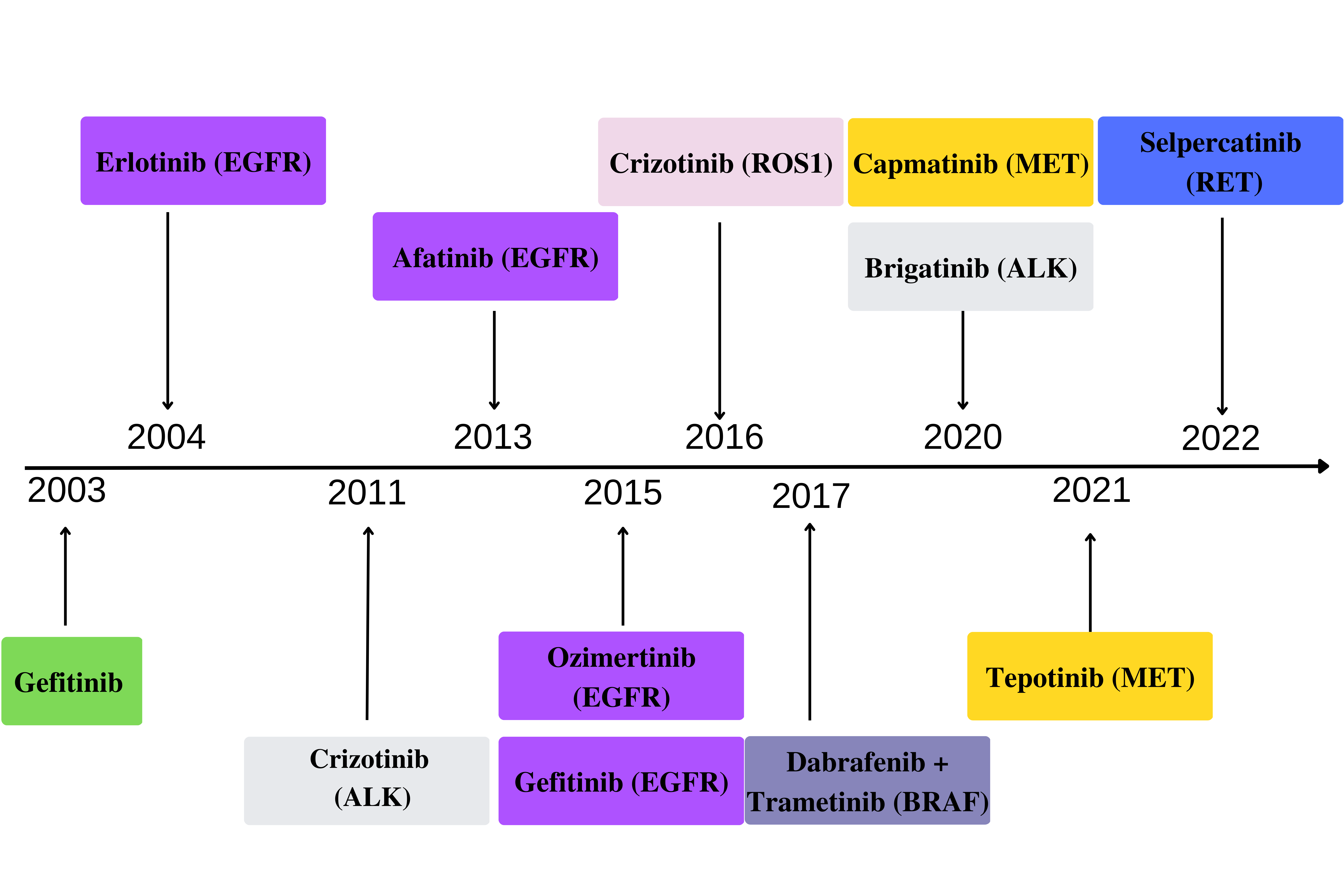Molecular alterations of driver genes in non-small cell lung cancer
from diagnostics to targeted therapy
DOI:
https://doi.org/10.17179/excli2023-6122Keywords:
non-small cell lung cancer, driver genes, molecular alterations, targeted therapiesAbstract
Lung cancer is the leading cause of cancer death all over the world. The majority (80-85 %) of lung cancer cases are classified as non-small cell lung cancer (NSCLC). Within NSCLC, adenocarcinoma (AC) and squamous cell carcinoma (SCC) are the most often recognized. The histological and immunohistochemical examination of NSCLC is a basic diagnostic tool, but insufficient for comprehensive therapeutic decisions. In some NSCLC patients, mainly adenocarcinoma, molecular alterations in driver genes, like EGFR, KRAS, HER2, ALK, MET, BRAF, RET, ROS1, and NTRK are recognized. The frequency of some of those changes is different depending on race, and between smokers and non-smokers. The molecular diagnostics of NSCLC using modern methods, like next-generation sequencing, is essential in estimating targeted, personalized therapy. In recent years, a breakthrough in understanding the importance of molecular studies for the precise treatment of NSCLC has been observed. Many new drugs were approved, including tyrosine kinase and immune checkpoint inhibitors. Clinical trials testing novel molecules like miRNAs and trials with CAR-T cells (chimeric antigen receptor – T cells) dedicated to NSCLC patients are ongoing.

Downloads
Published
How to Cite
License
Copyright (c) 2023 Anna Grodzka, Agnieszka Knopik-Skrocka, Katarzyna Kowalska, Paweł Kurzawa, Monika Krzyżaniak, Katarzyna Stencel, Maciej Bryl

This work is licensed under a Creative Commons Attribution 4.0 International License.
Authors who publish in this journal agree to the following terms:
- The authors keep the copyright and grant the journal the right of first publication under the terms of the Creative Commons Attribution license, CC BY 4.0. This licencse permits unrestricted use, distribution and reproduction in any medium, provided that the original work is properly cited.
- The use of general descriptive names, trade names, trademarks, and so forth in this publication, even if not specifically identified, does not imply that these names are not protected by the relevant laws and regulations.
- Because the advice and information in this journal are believed to be true and accurate at the time of publication, neither the authors, the editors, nor the publisher accept any legal responsibility for any errors or omissions presented in the publication. The publisher makes no guarantee, express or implied, with respect to the material contained herein.
- The authors can enter into additional contracts for the non-exclusive distribution of the journal's published version by citing the initial publication in this journal (e.g. publishing in an institutional repository or in a book).





